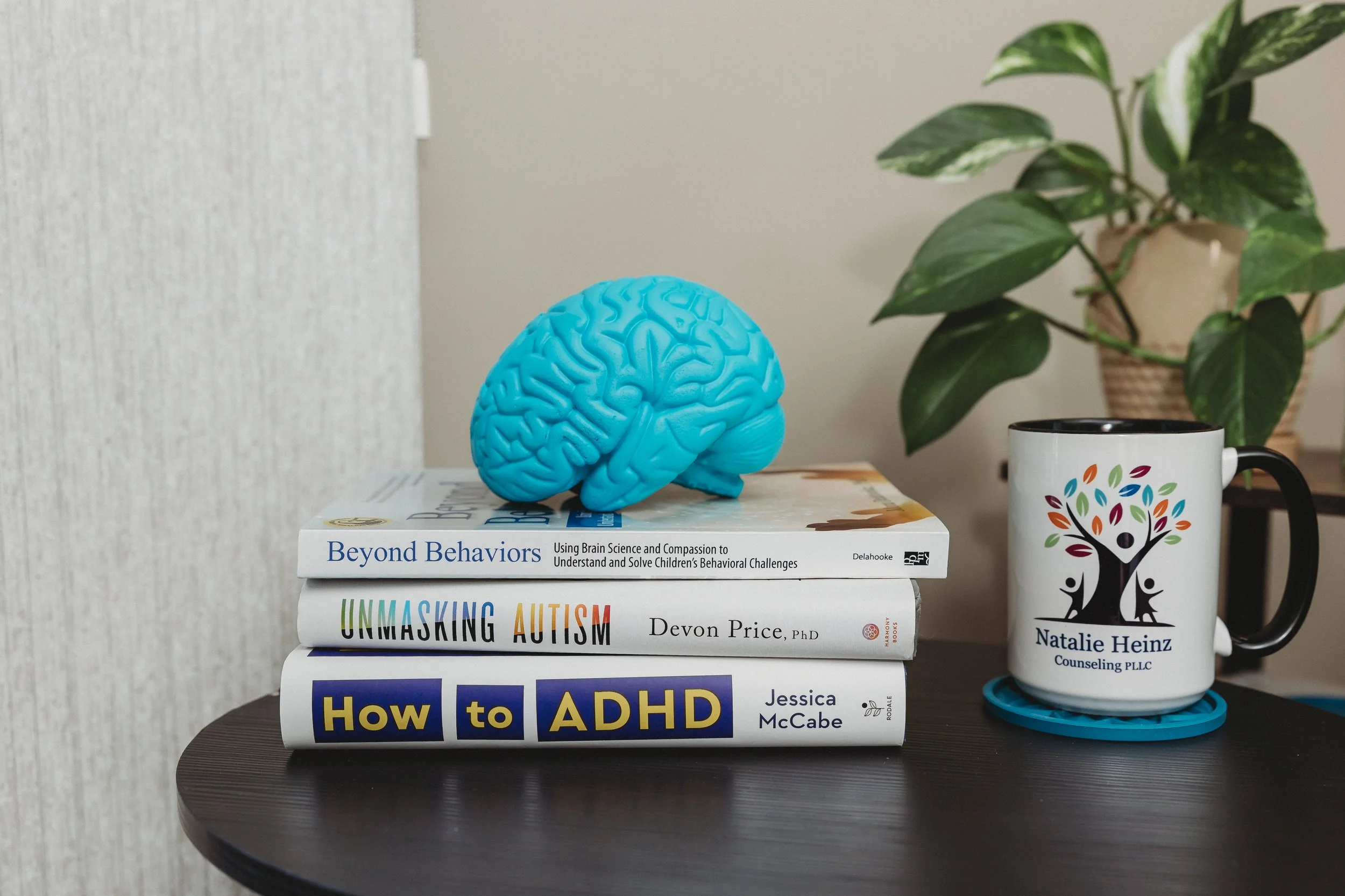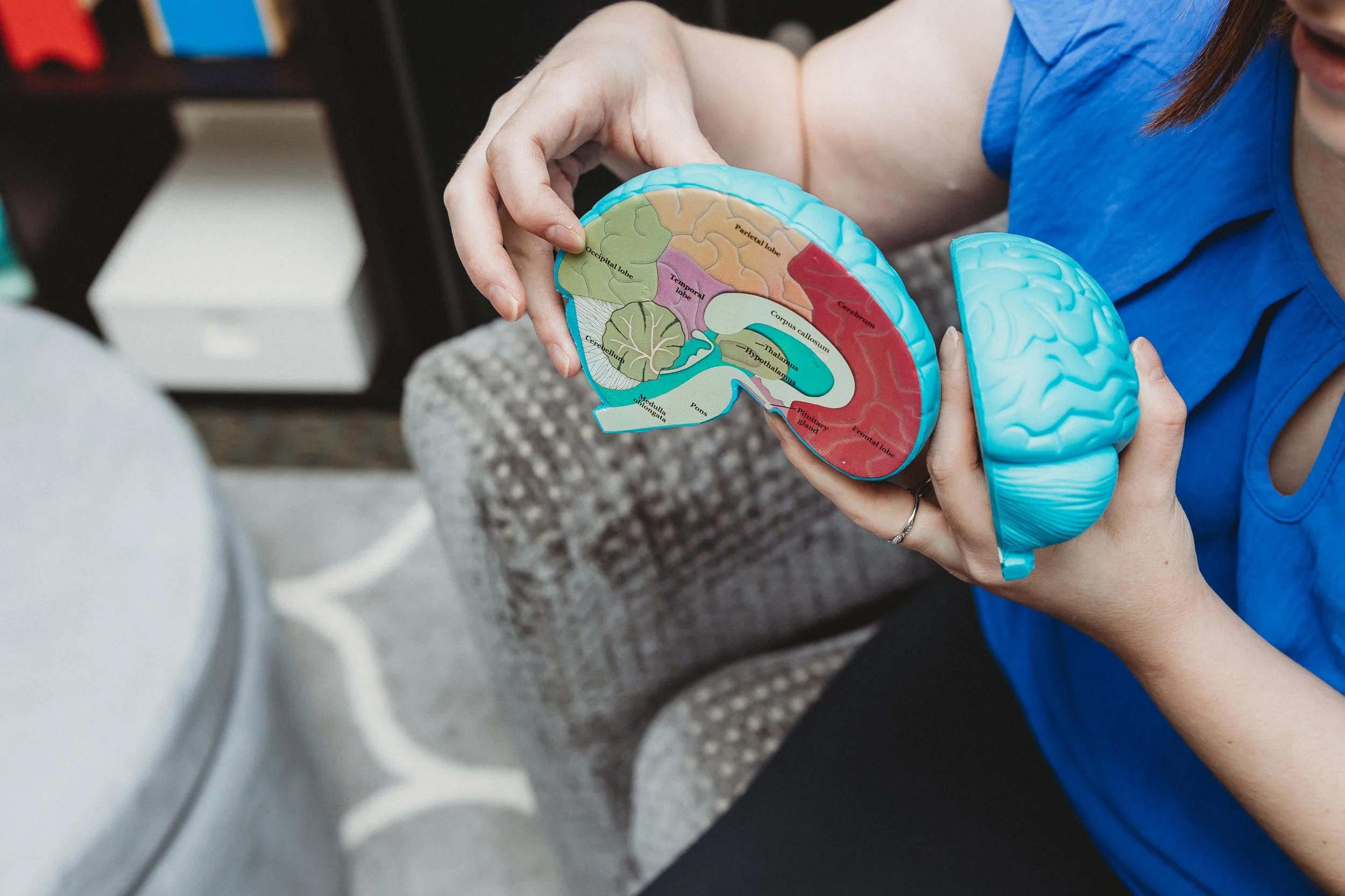Neurodiversity- Affirming Therapy
Neurodivergent-affirming therapy for autistic children and adults, ADHD-ers, and other forms of neurodivergent brains
When your brain is wired differently, the environment can become more challenging. Needs are different. Coping is different. Neurodivergent people need neurodivergent therapists. As an autistic therapist, I will partner with you to learn more about the way your unique brain works. Whether you are formally diagnosed, self-diagnosed, or just questioning and trying to understand more about your brain, I can help you better understand yourself. Neurodivergent people are often struggling with various forms of anxiety and depression as well. Treating these difficulties from a neurodivergent-affirming perspective is essential to feeling better.
Therapy for Neurodivergent Children
I integrate neurodiversity-affirming principles into all of my therapy work. Play therapy often includes identifying sensory needs of your child and helping both of you learn to best implement accommodations.
-
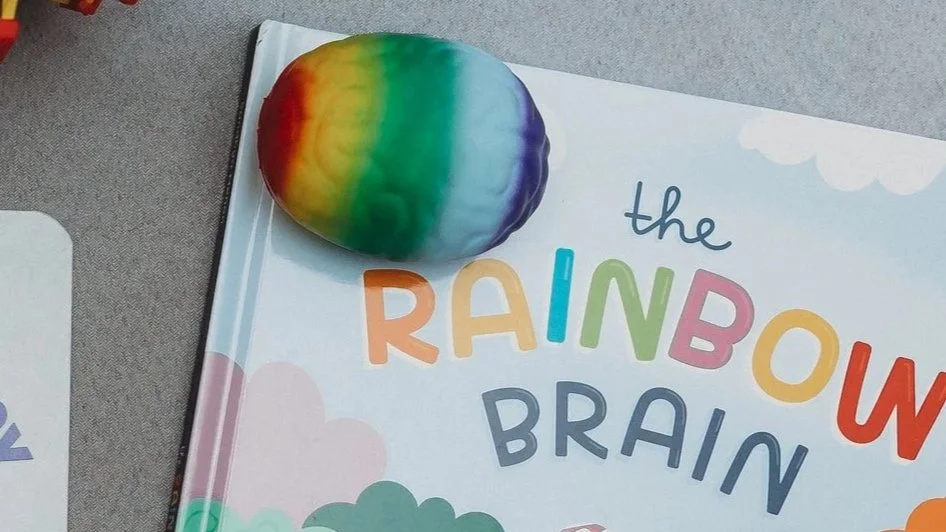
Autistic Individuals
Autistic individuals experience a high rate of depression and anxiety symptoms throughout their lives. Many autistics benefit from therapy to support their needs and goals. Having a provider that is neurodiversity affirming can help you feel accepted through your therapy journey.
-
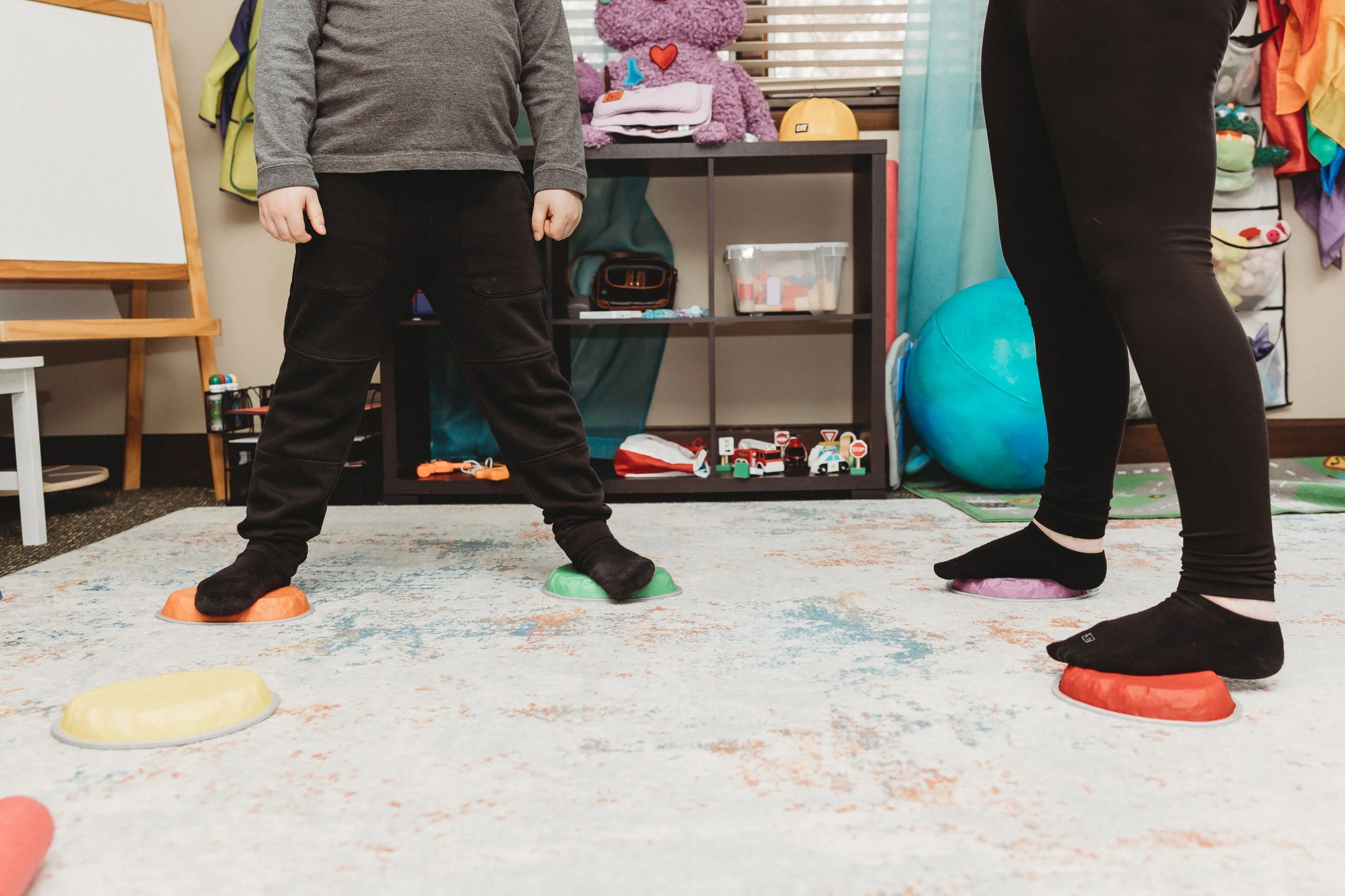
ADHD-ers
Play therapy allows for your child to work with their therapist to find ways to support their energy levels. Your provider can support you in the ways to adjust parenting styles to best support your child. Play therapy works with your child’s natural abilities to build up their skills in a way that works for them.
-
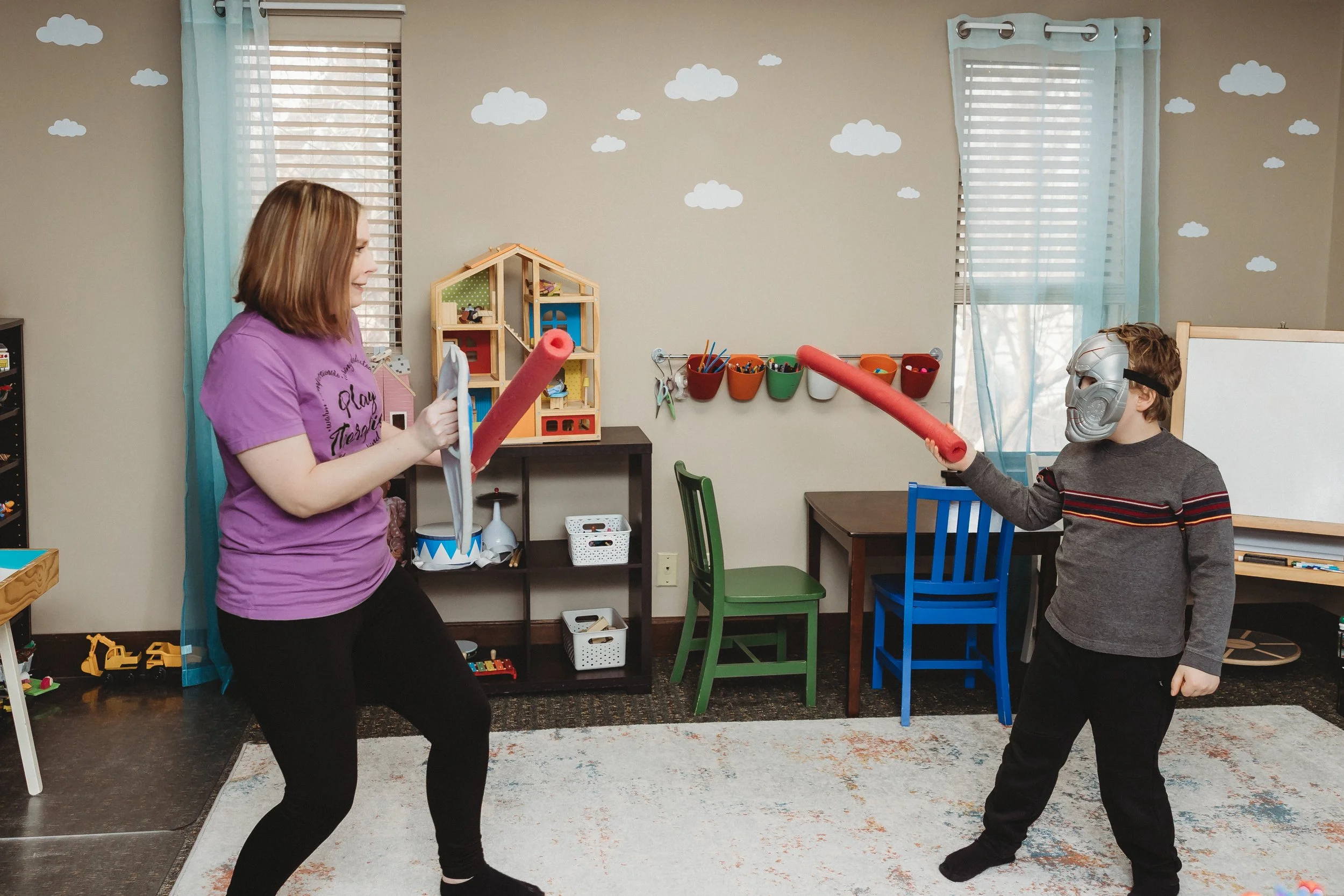
PDA
When behaviors feel out of control, your child may be experiencing a nervous system disorder called PDA (pathological demand avoidance or persistent drive for autonomy) Learn more about PDA here.
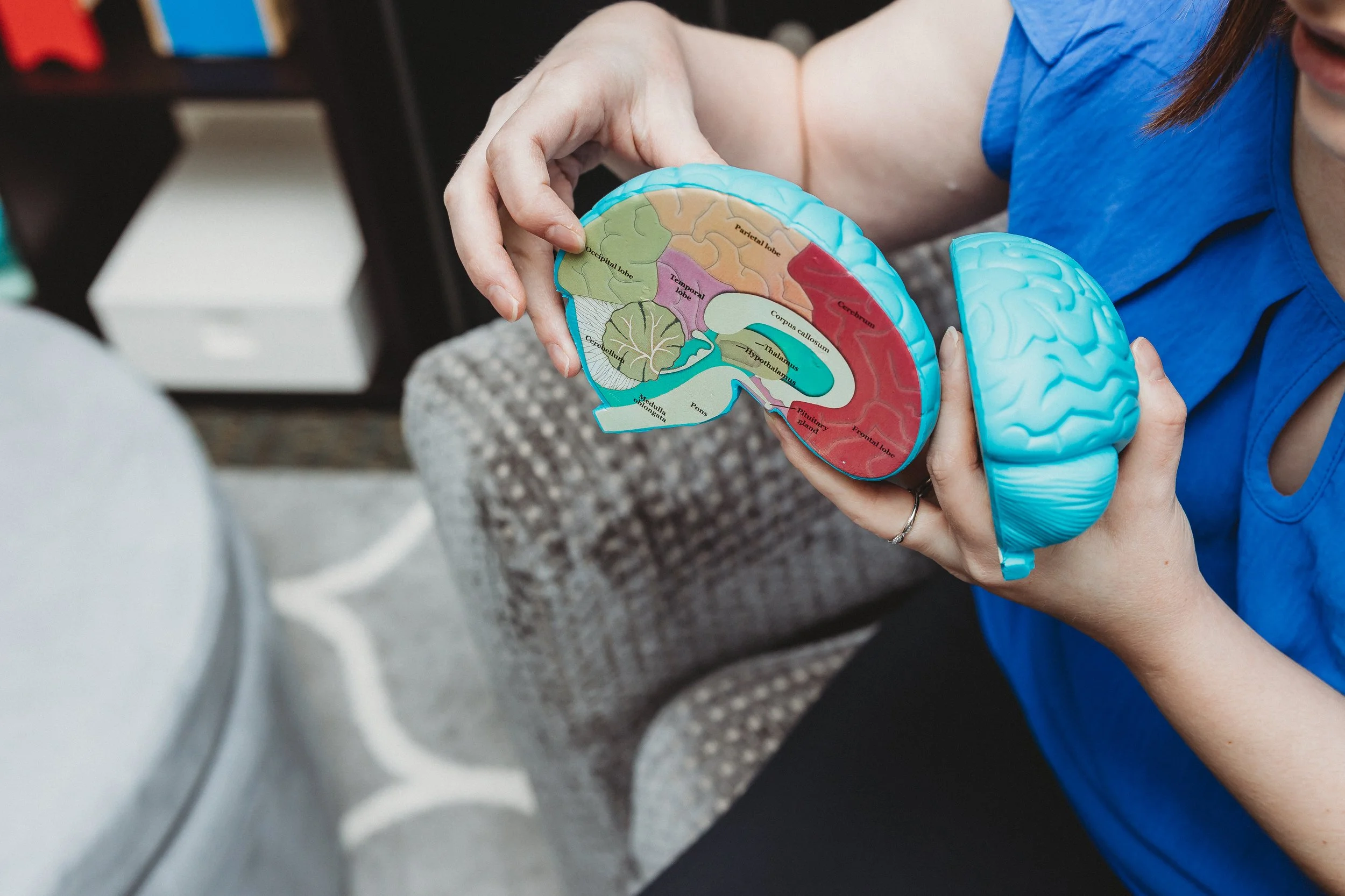
Learn more about neurodiversity-affirming play therapy here.
FAQs
-
Autistic children often experience anxiety, depression, and challenges with sensory differences. They may also experience differences in their relationships that affect their friendships. Neurodiversity-affirming play therapy is a place where they can unmask, be themselves, and learn about their brain. They are in the lead in the playroom, so I can identify with them coping skills, coregulation, and sensory accommodations that may help them succeed.
-
Masking is very common among neurodivergent individuals. However, masking can be detrimental in the long term and cause poor mental health outcomes.
For many neurodivergent children, masking is a form of adaption. Masking allows them to fit in. They can hold it together through the school day, but when they are safe at home, their struggles all surface. Parents in these situations may really struggle to have providers and schools understand the needs of their child. They may feel that they are the problem. However, this problem is all too common among parents raising neurodivergent children. A provider that understands masking can allow you to have what you need. You will feel supported, and your provider can work with you to find accommodations that allow your child to feel safe in other environments to reduce the need for masking. Even if other environments are not safe, neurodiversity-affirming play therapy will allow for your child to have a safe space to unmask and have their needs met. This process does not happen quickly, but you will feel supported along the way.
-
ABA (applied behavioral analysis) is often recommended for autistic children. However, autistic adults and recent research has demonstrated the ways that ABA can be traumatizing for autistic children. This technique often teaches children to mask and attempts to force children to appear more neurotypical. Neurodiversity-affirming play therapy can instead focus on helping your child to learn how to truly be themselves and build upon their unique skills and brain wiring while also being mindful of the ways that the current society may make it difficult for your child.
-
The neurodiversity paradigm means that neurodiversity is understood in the same way as all forms of human diversity. It acknowledges that there is no such thing as a normal brain. It embraces and affirms the way your or your child unique brain works and seeks to enhance their current skills rather than change who they are. This also means that I do not “treat” autism because I am not attempting to change the brain. I seek to help improve the challenges and problems by finding coping and skills that work for the brain that you or your child has.




